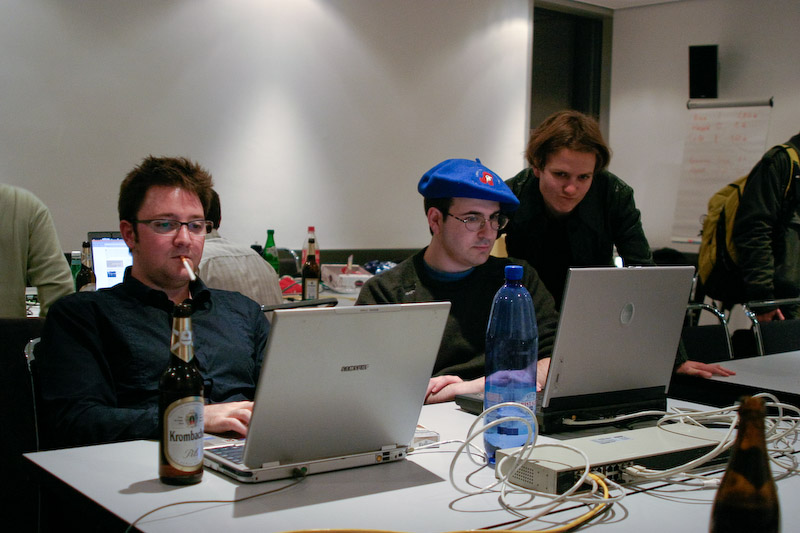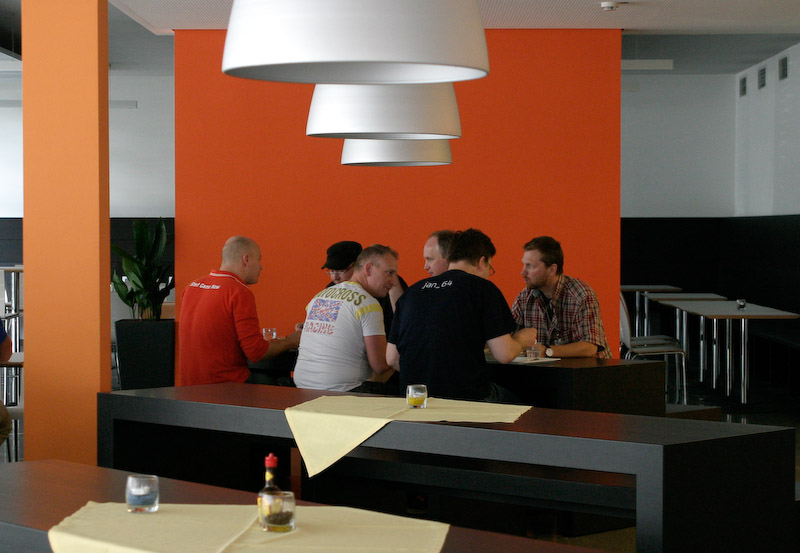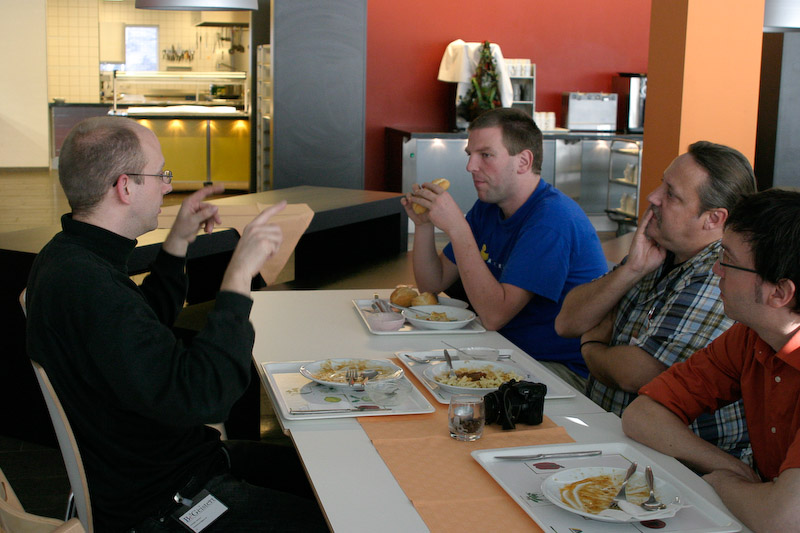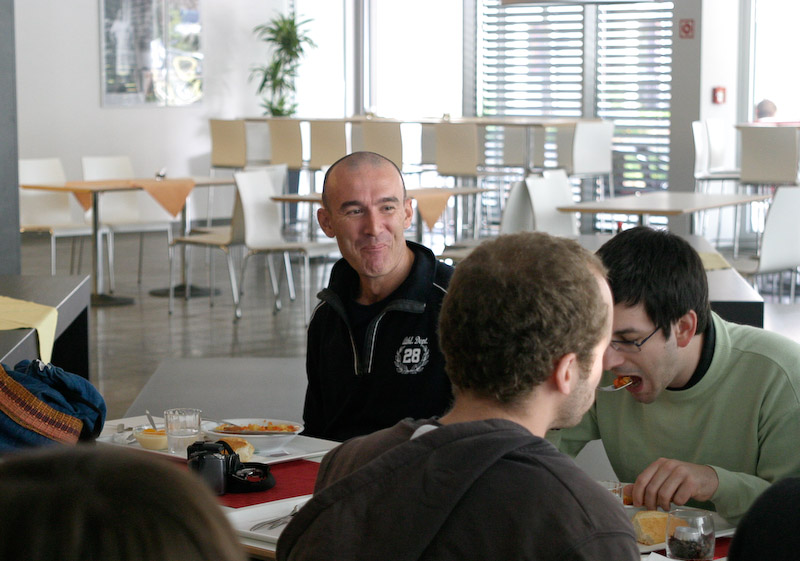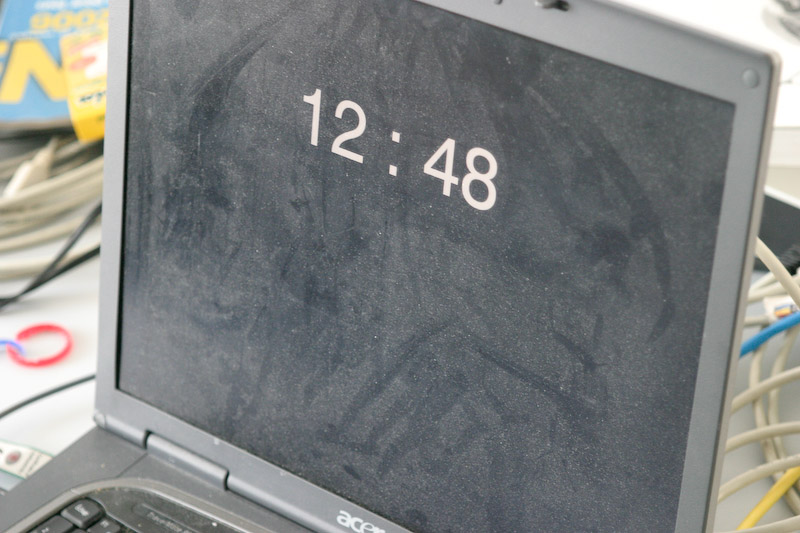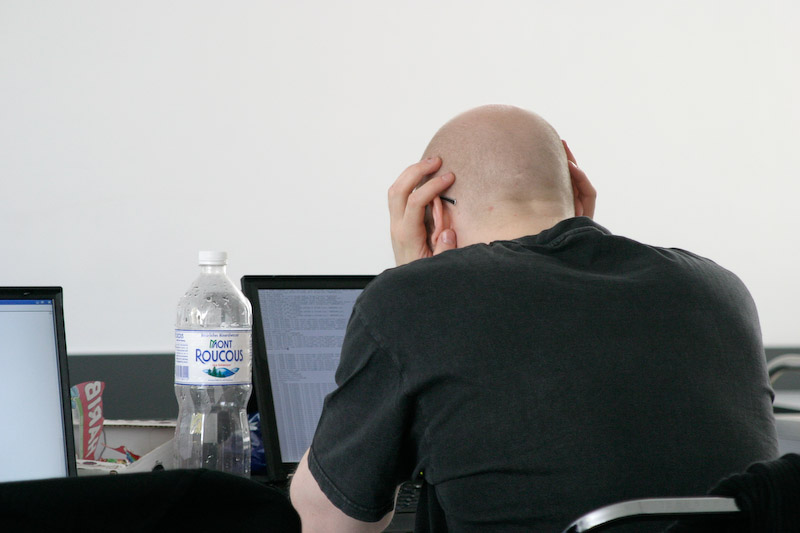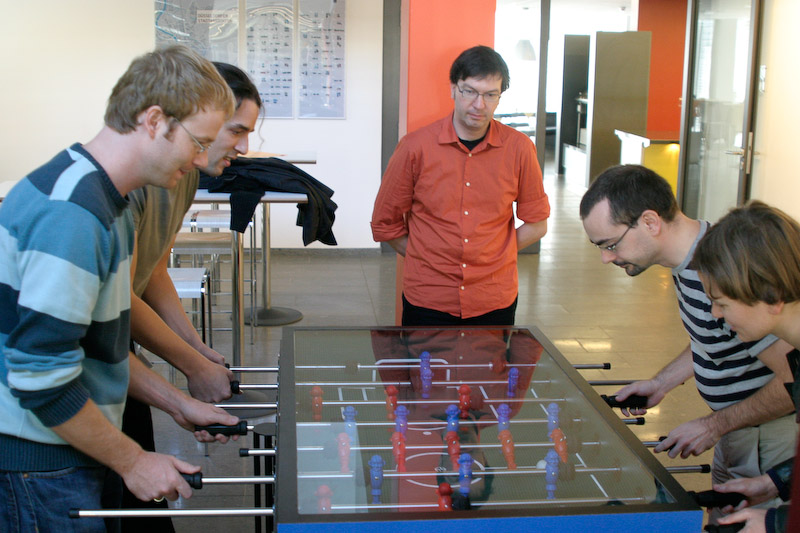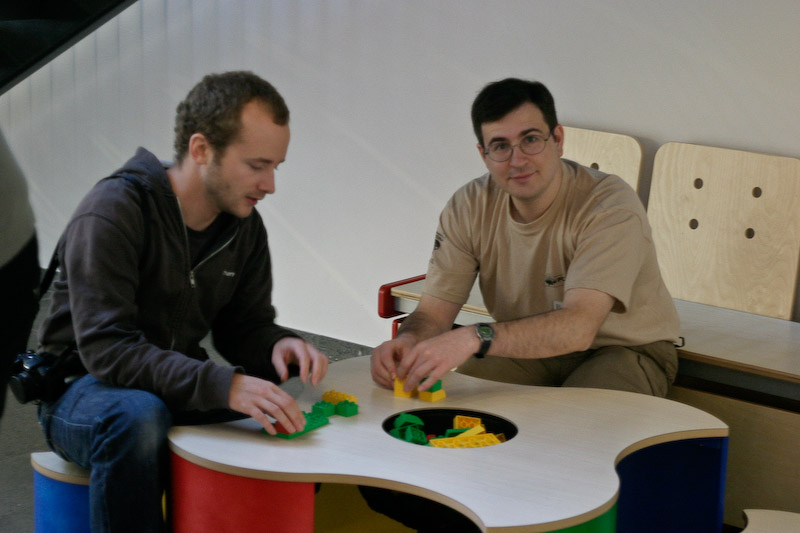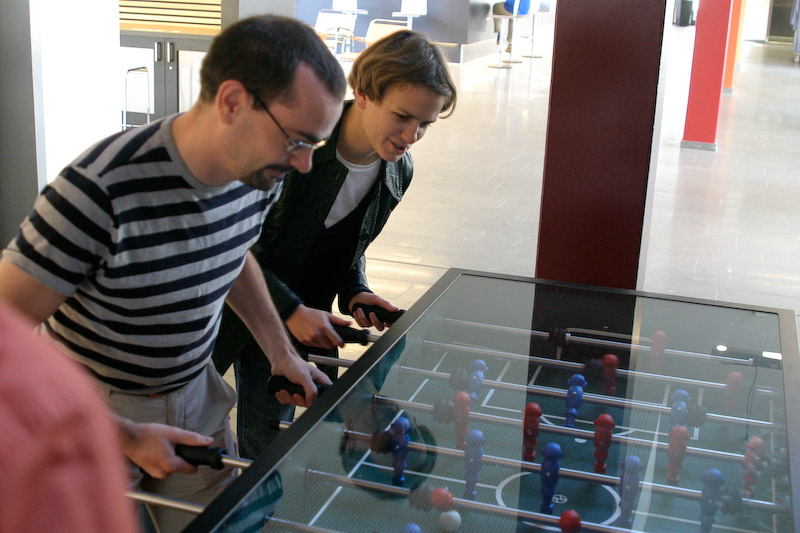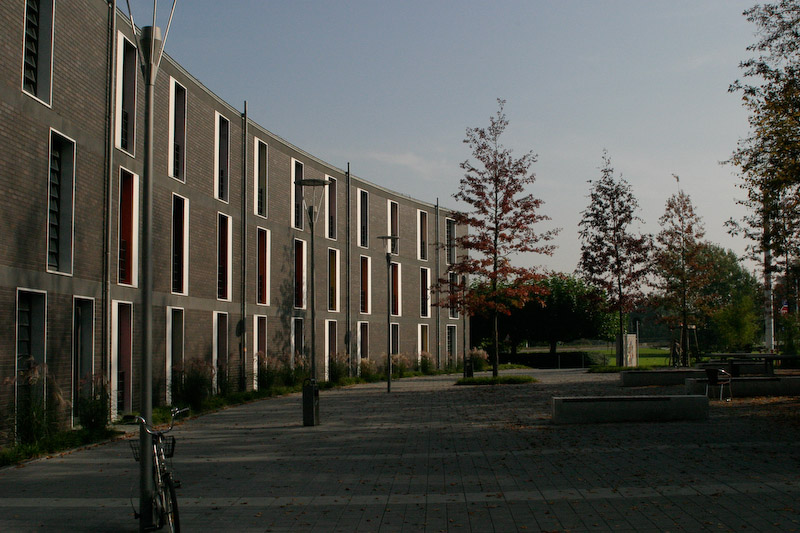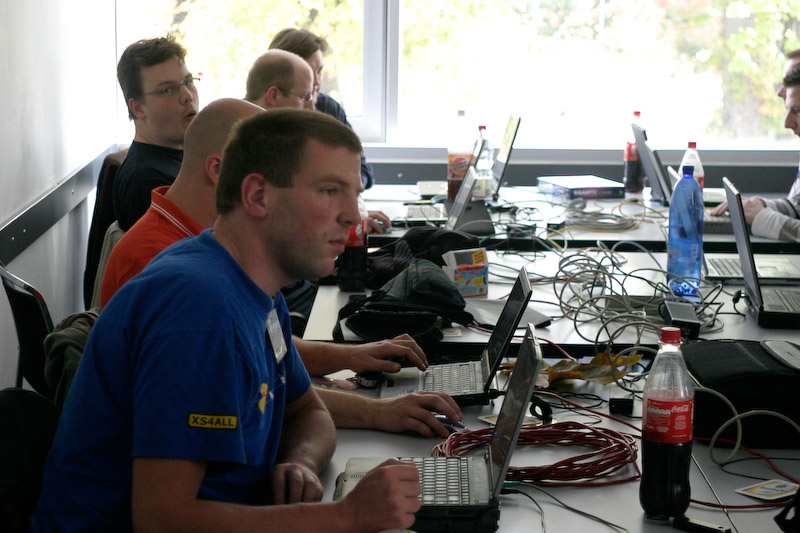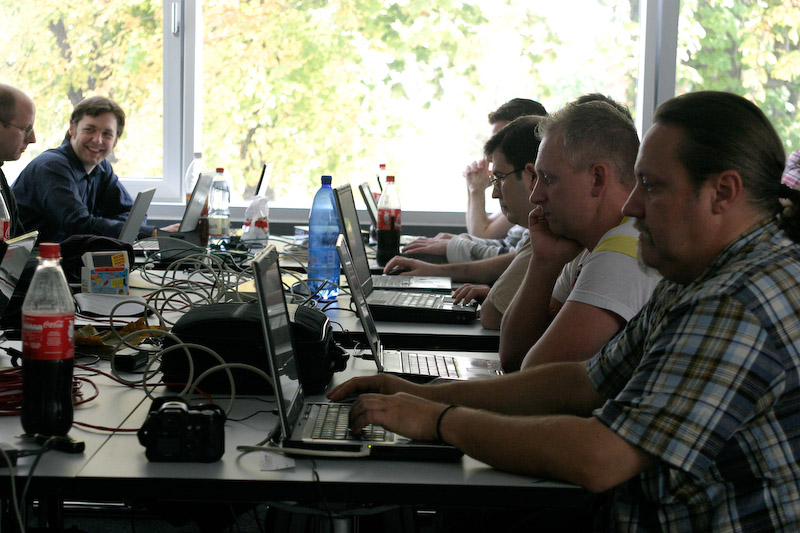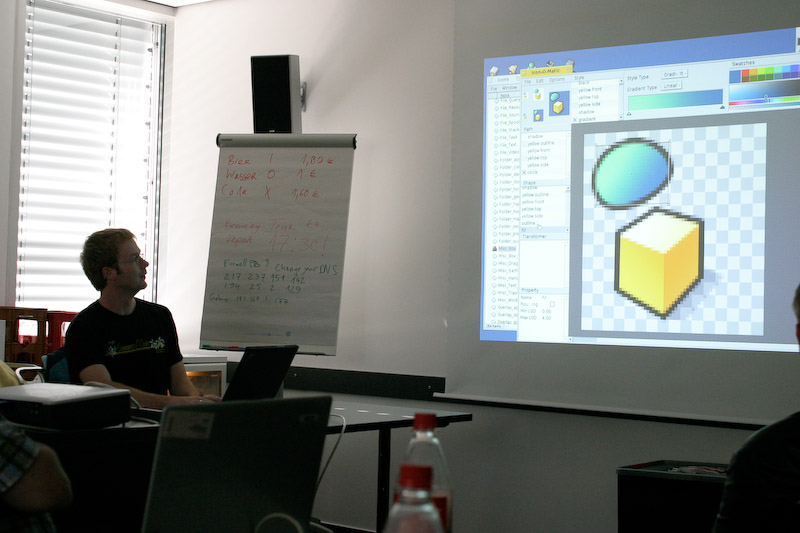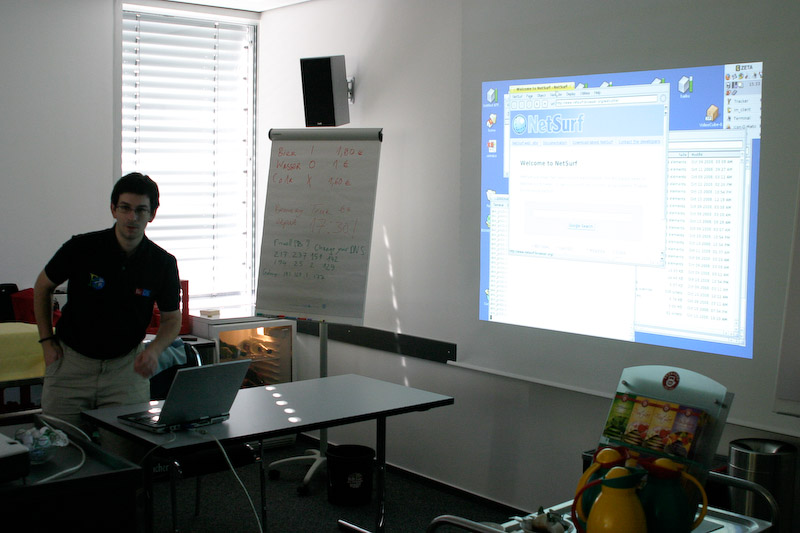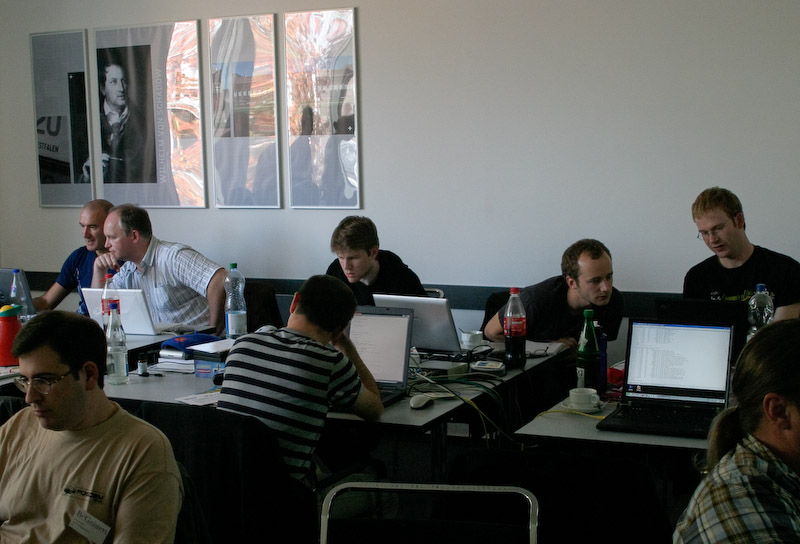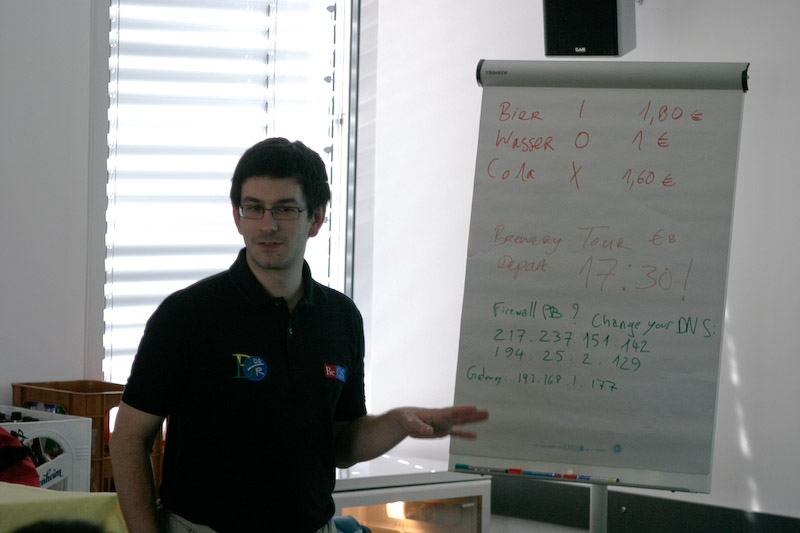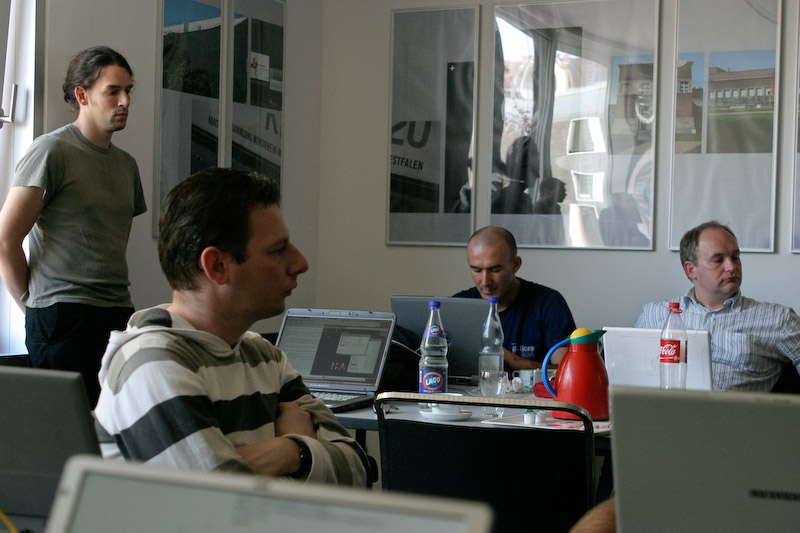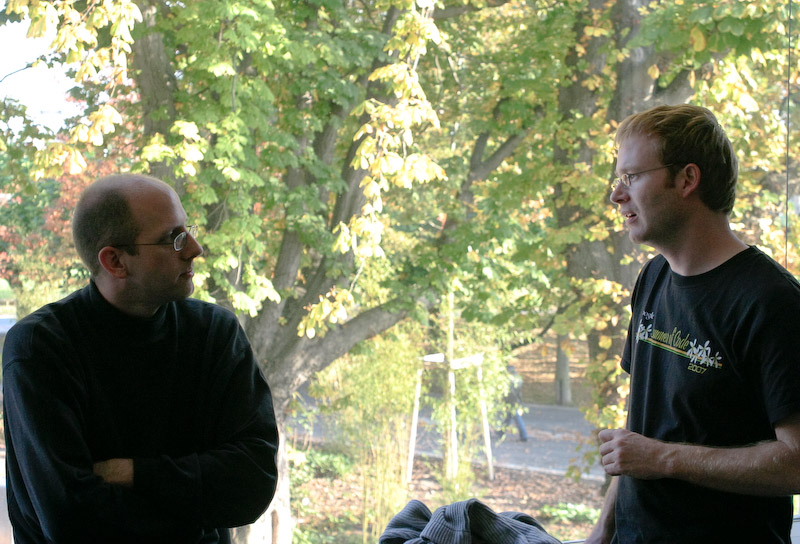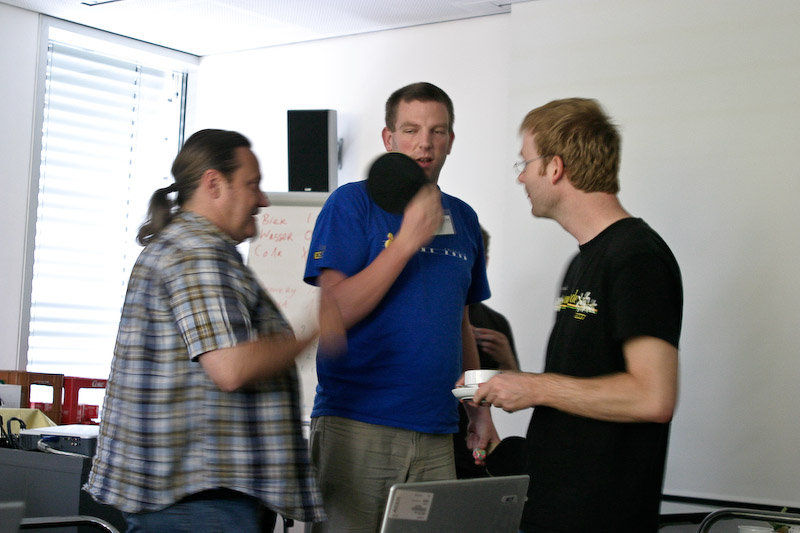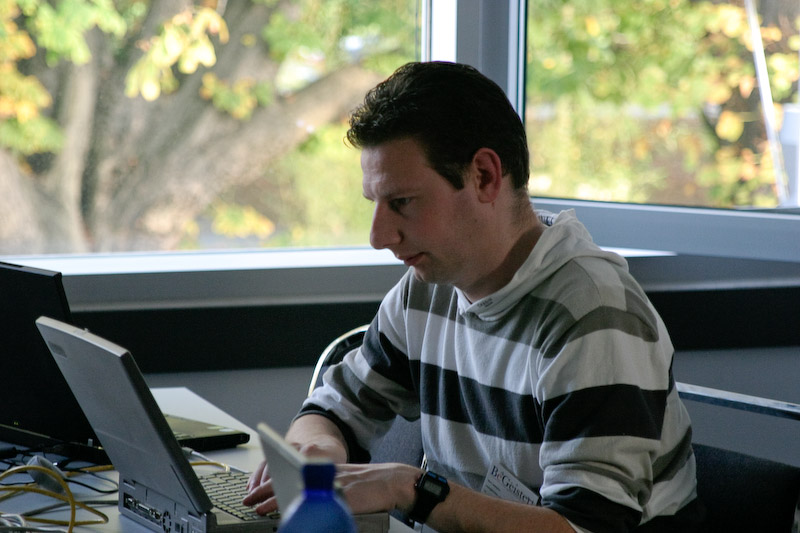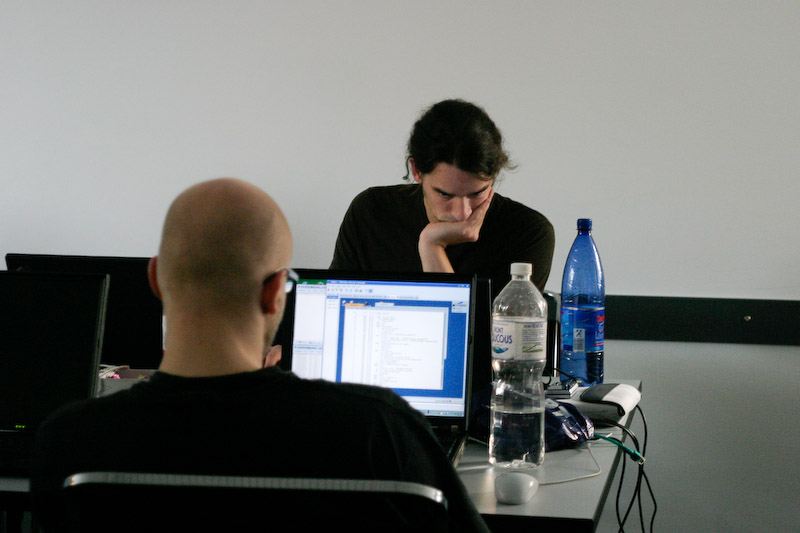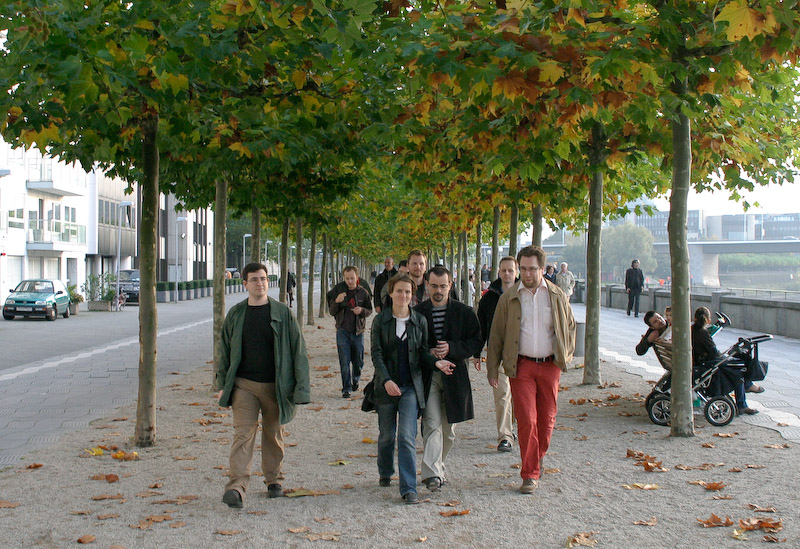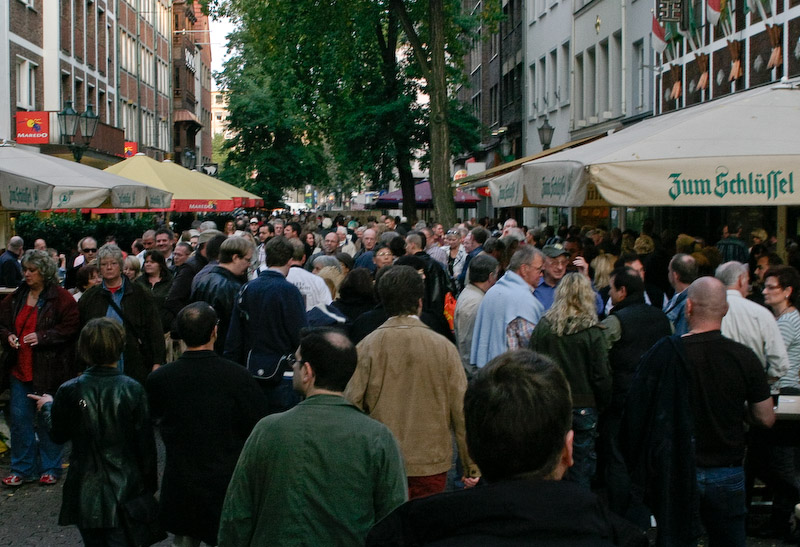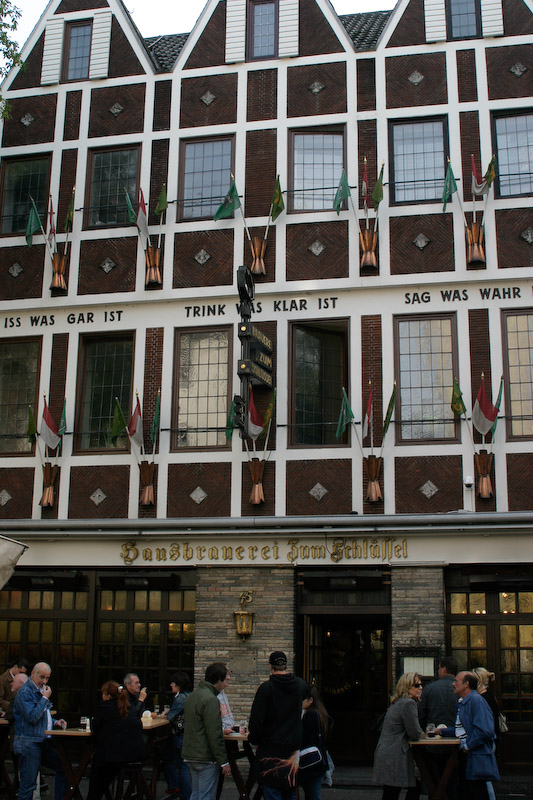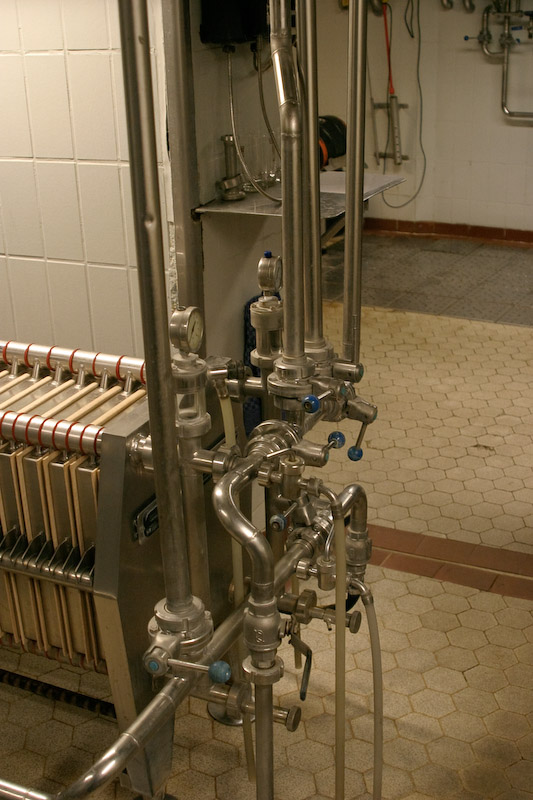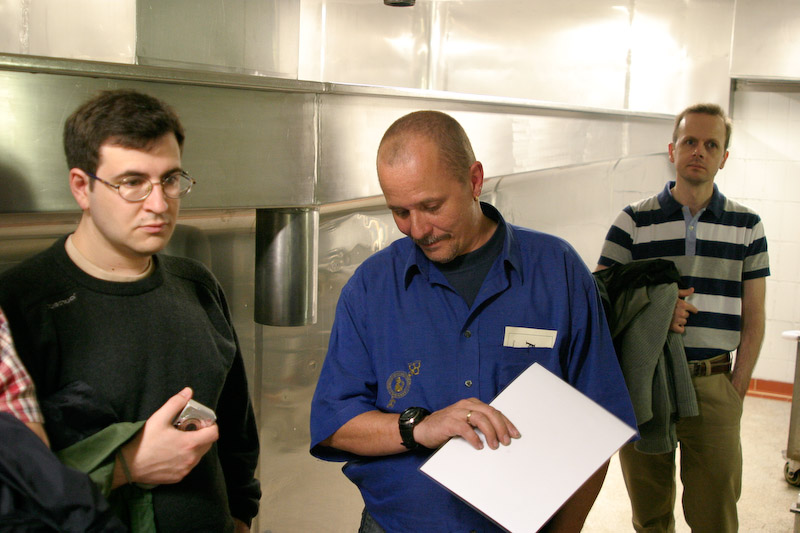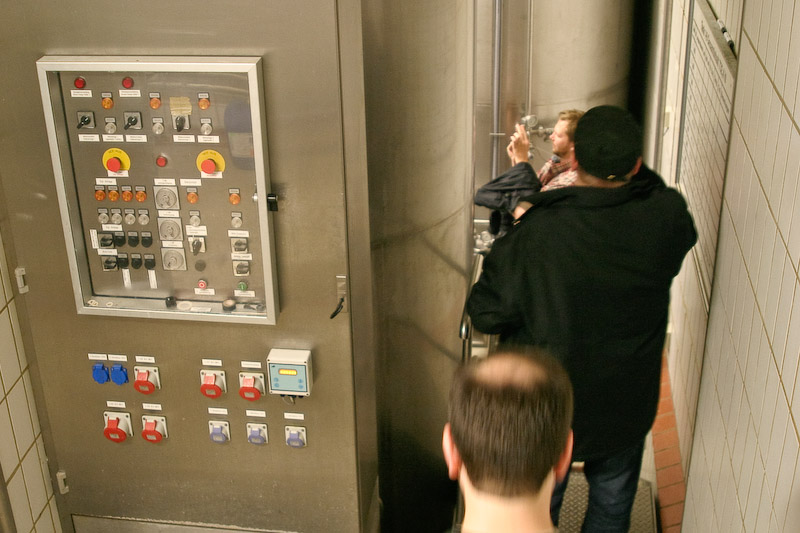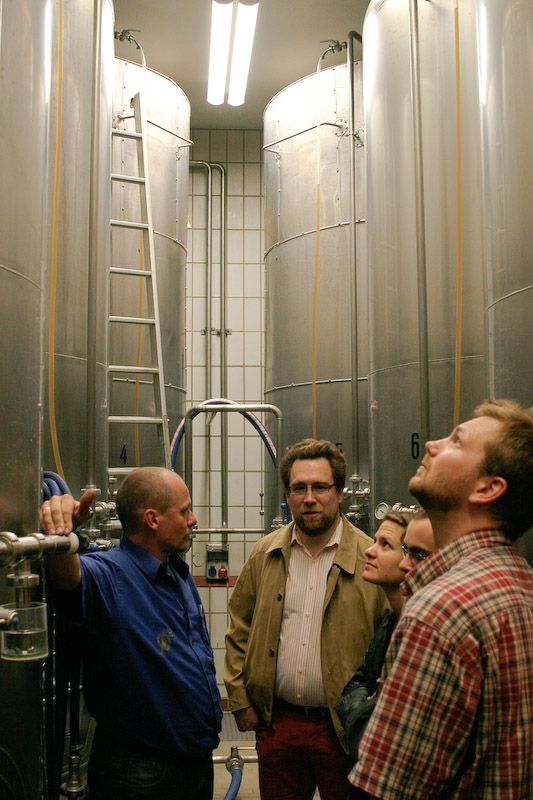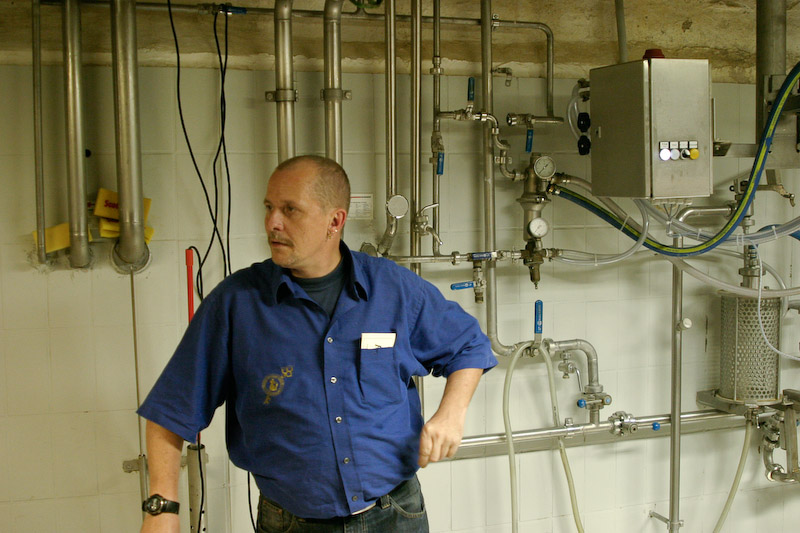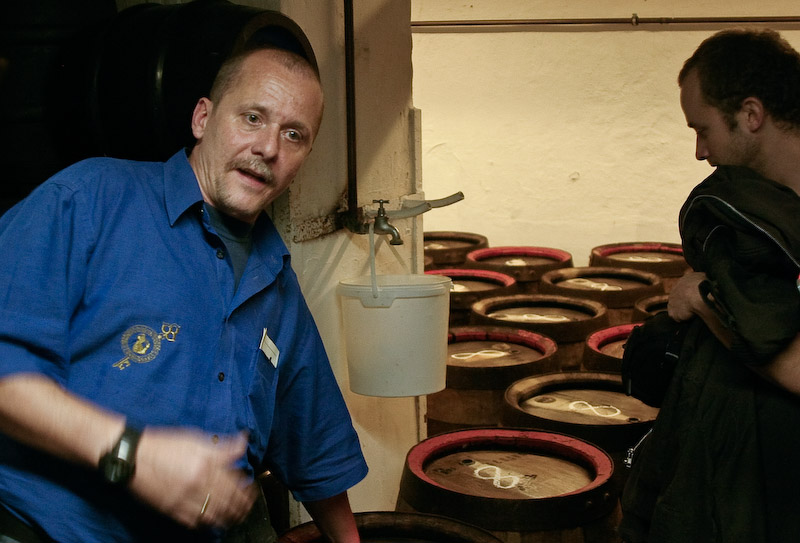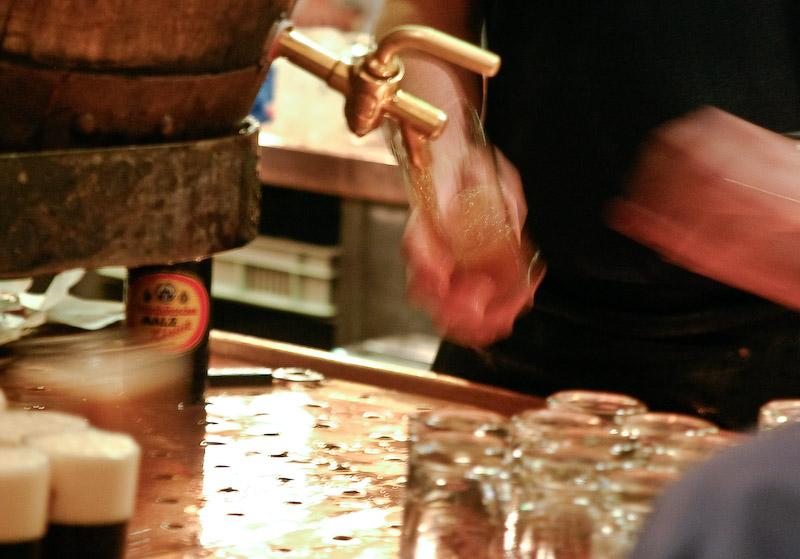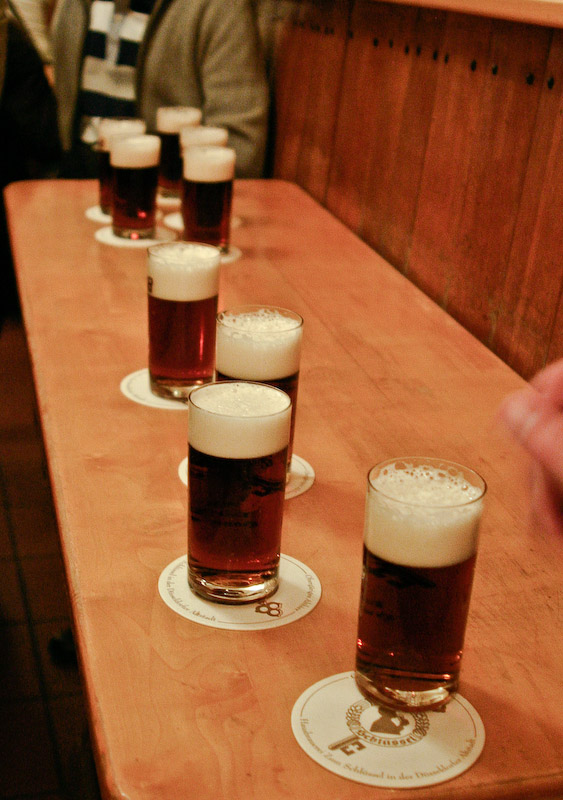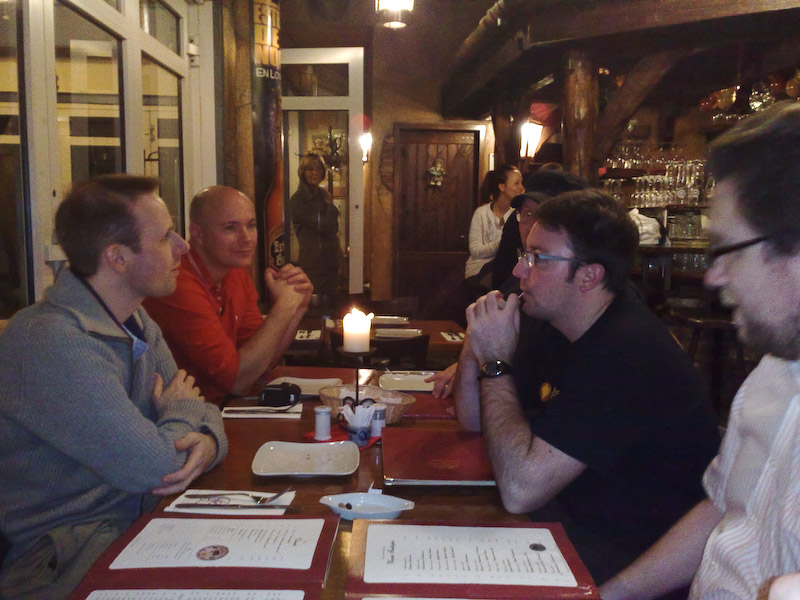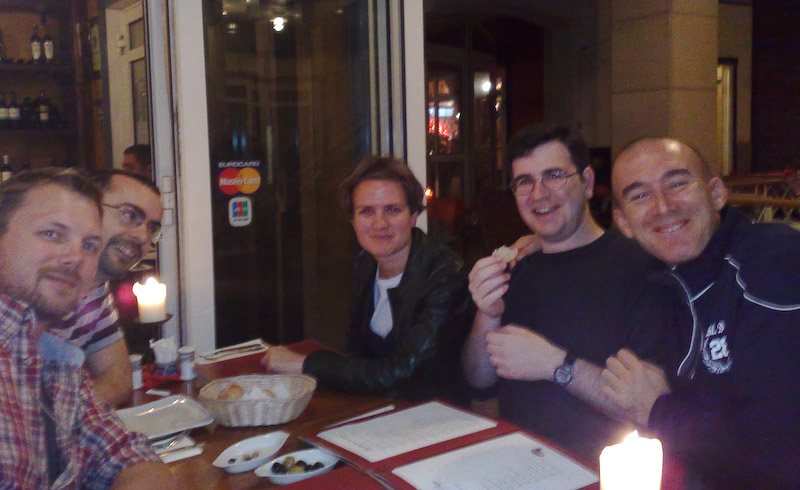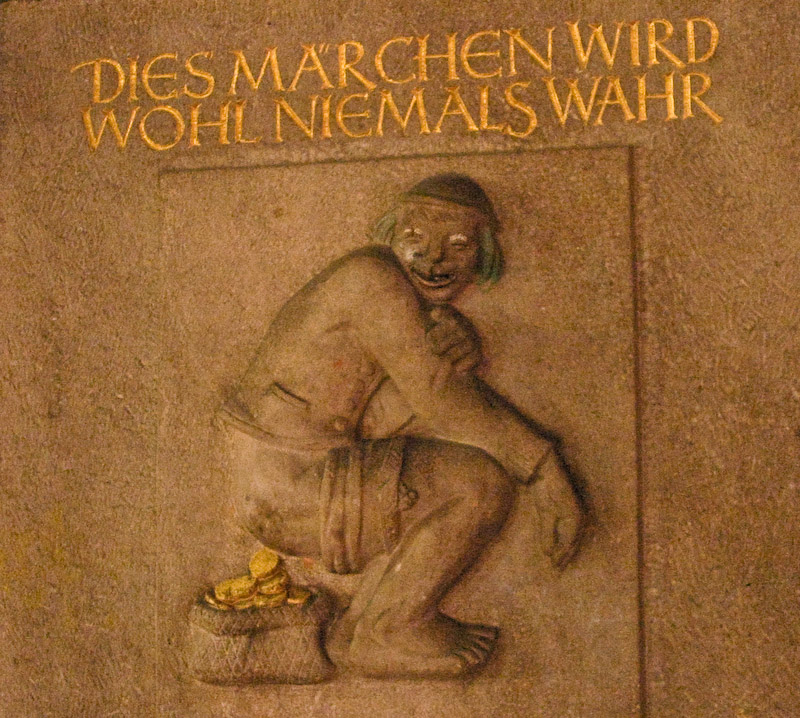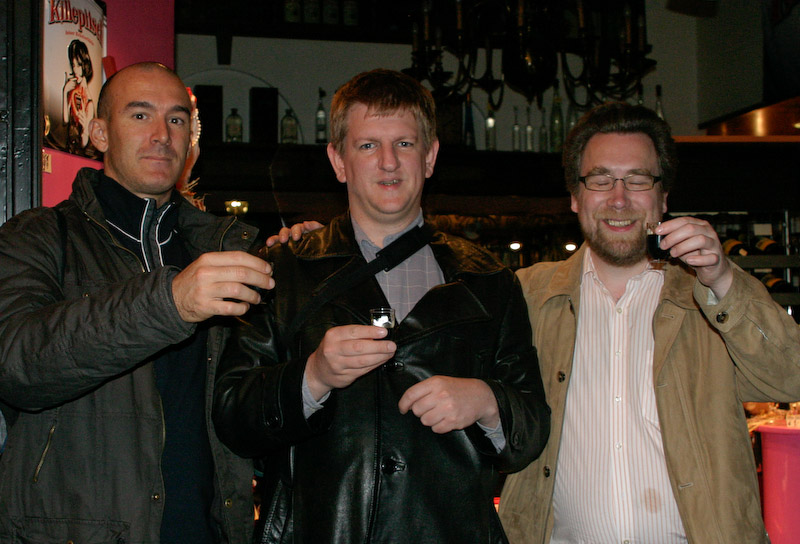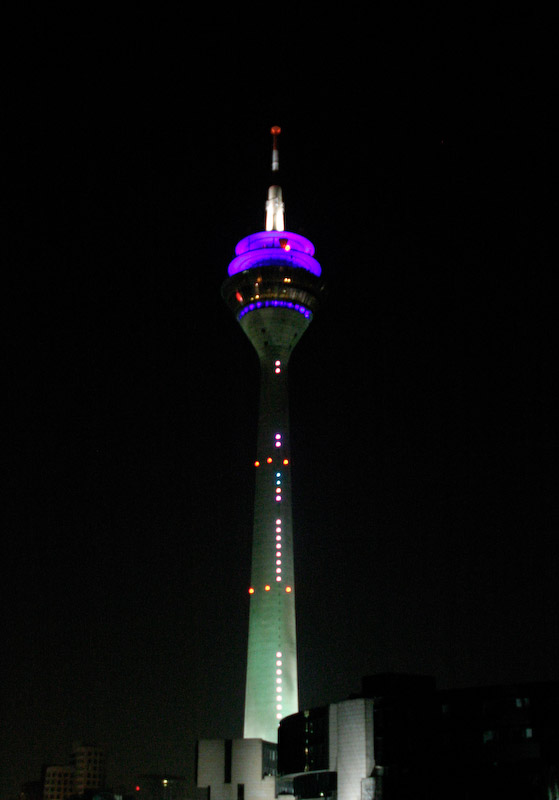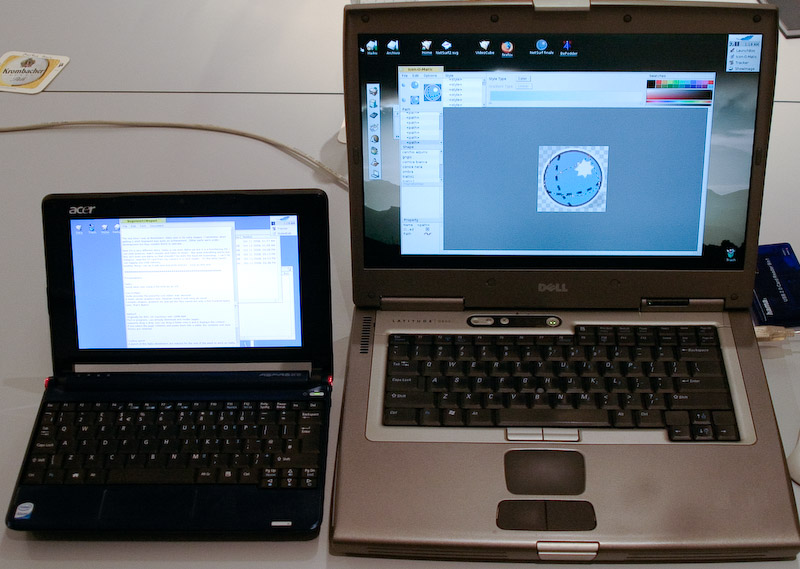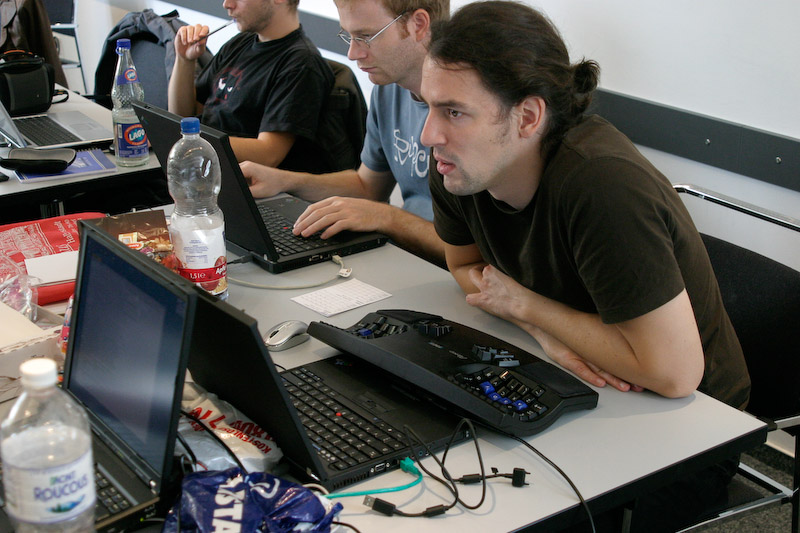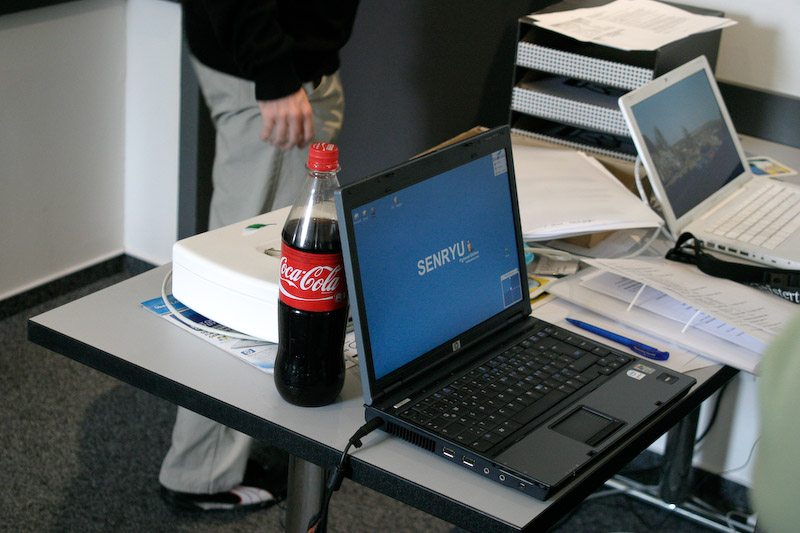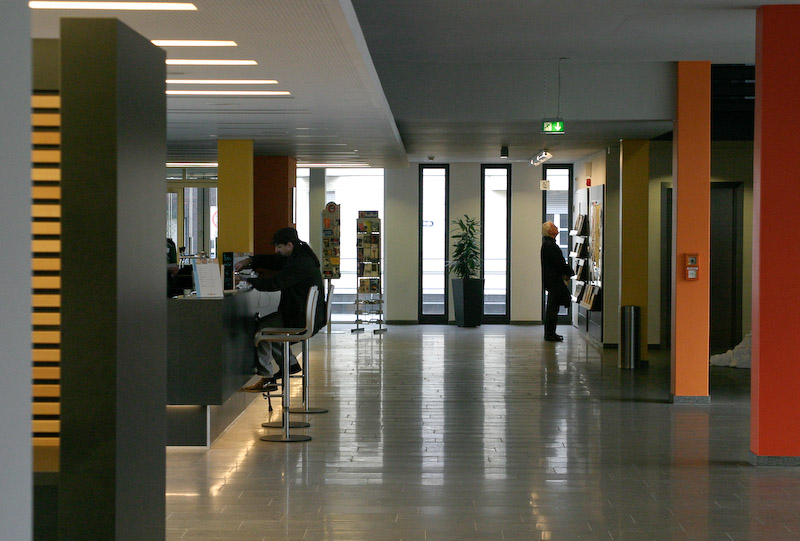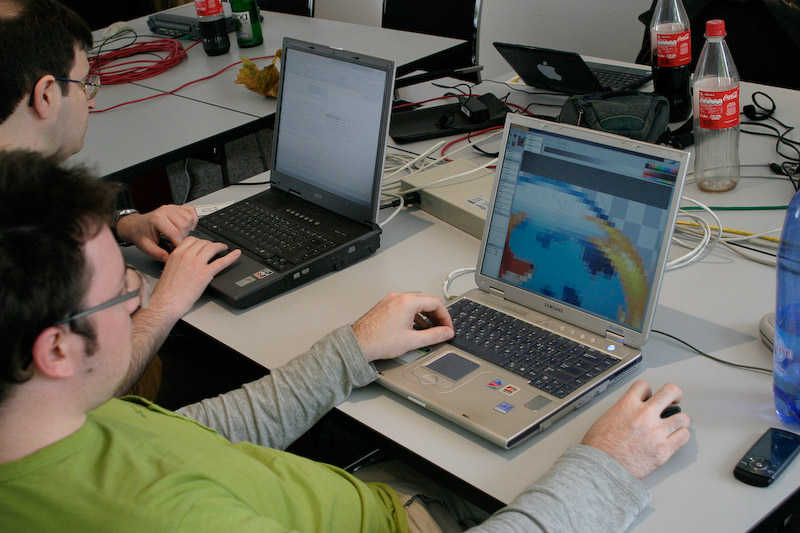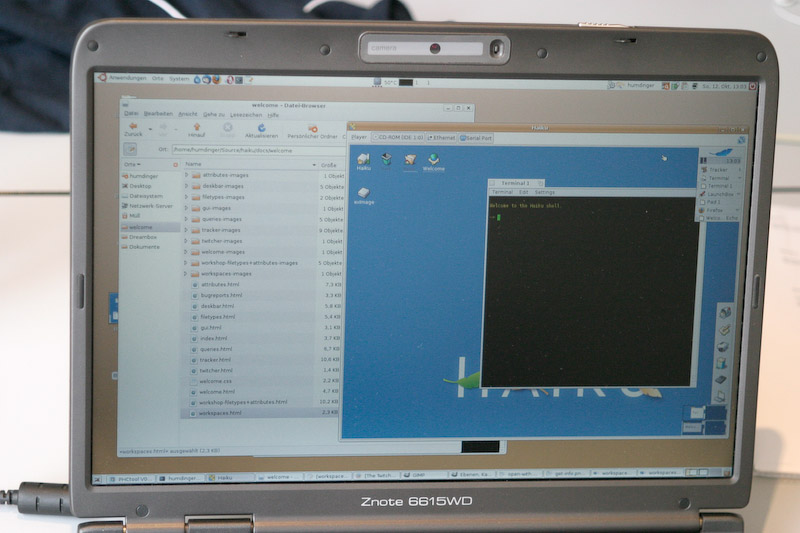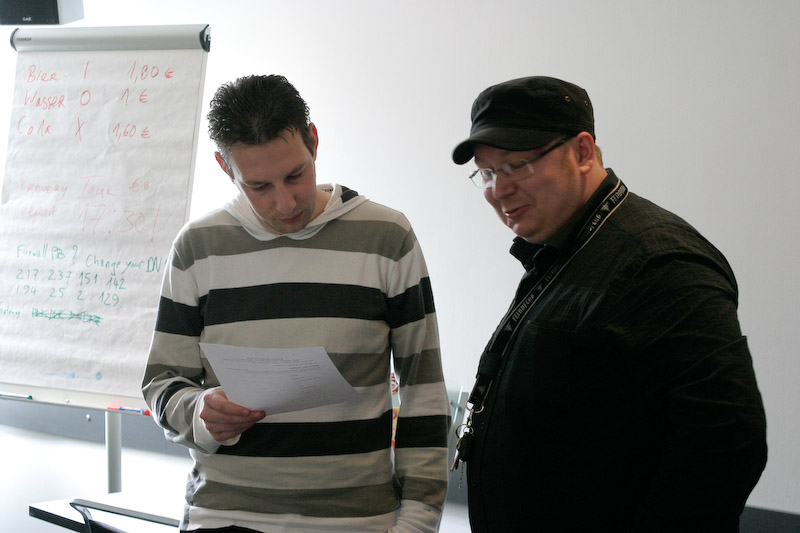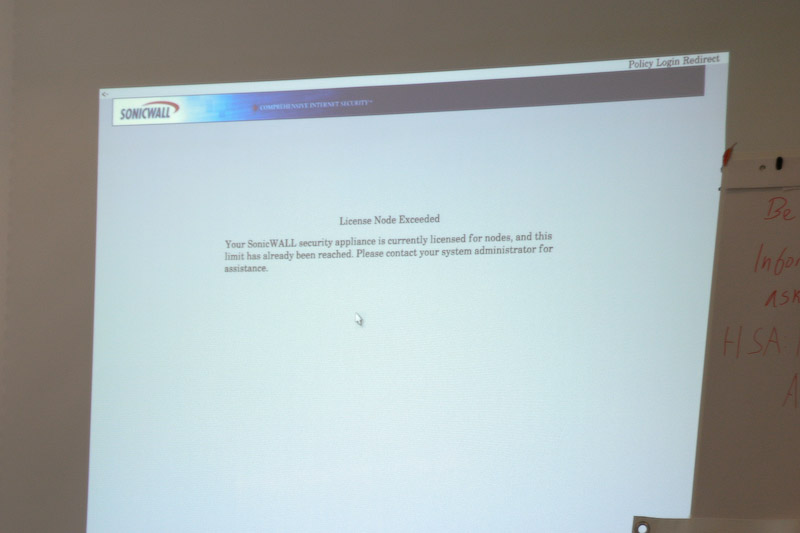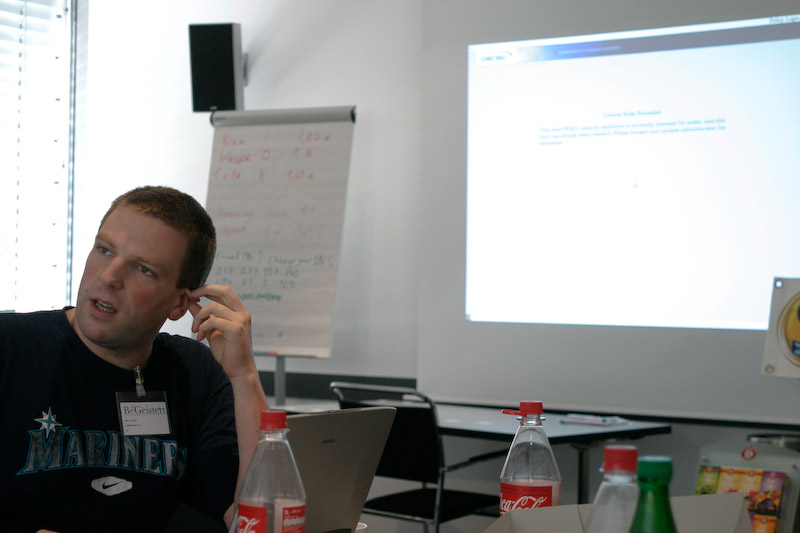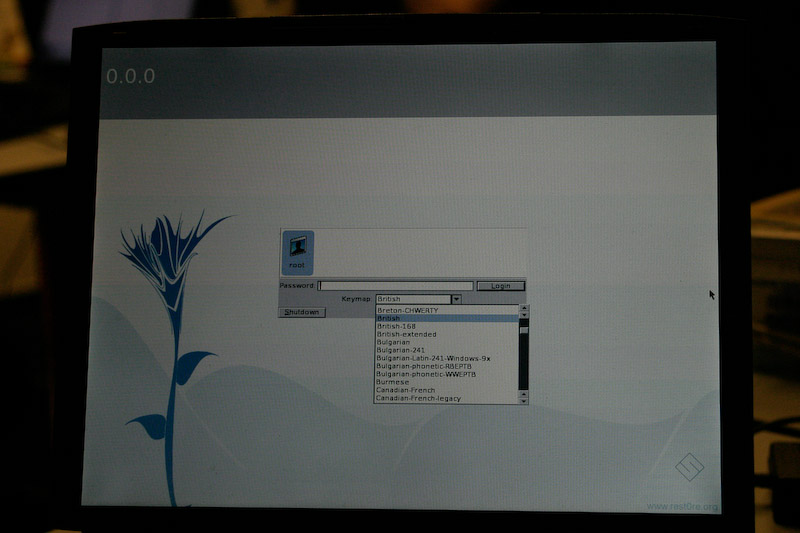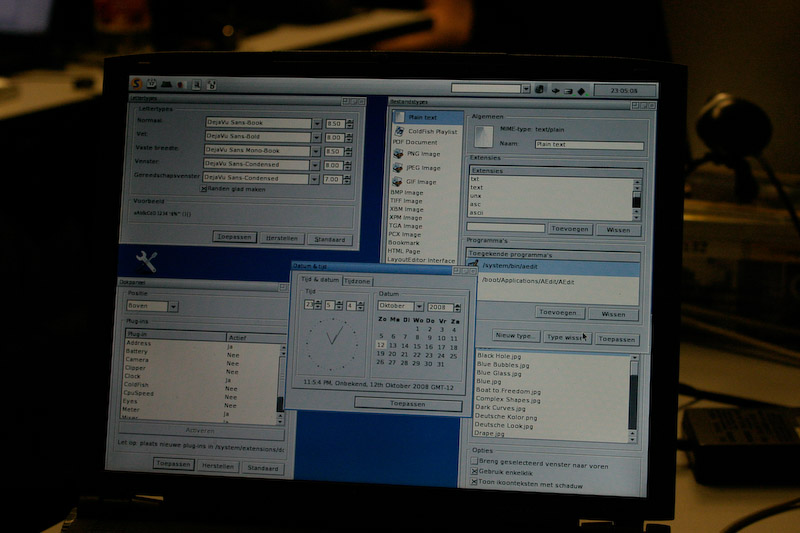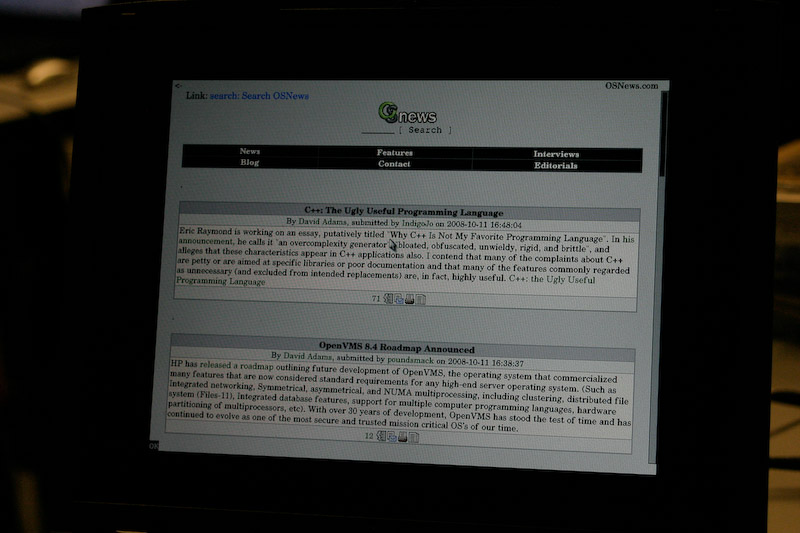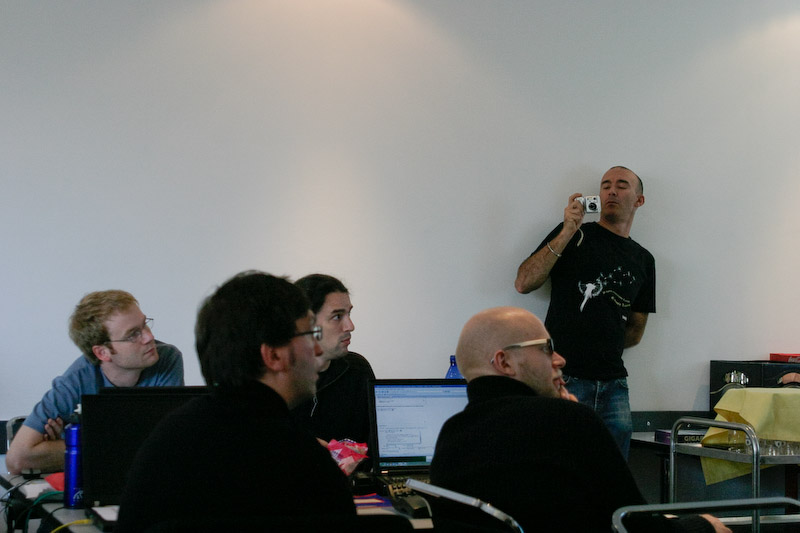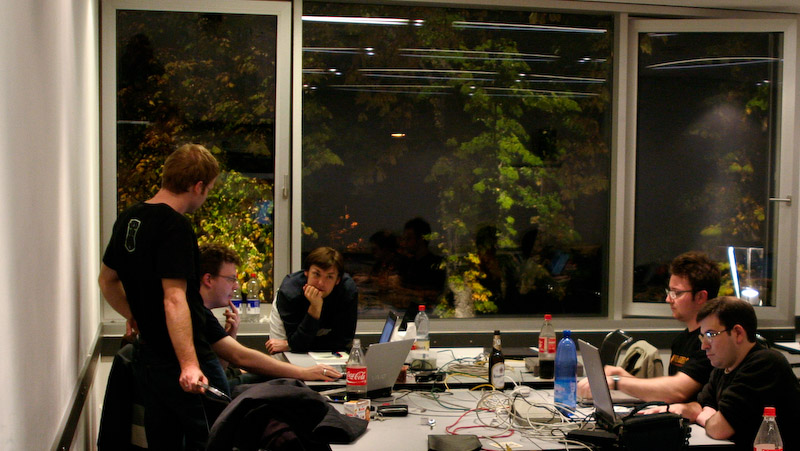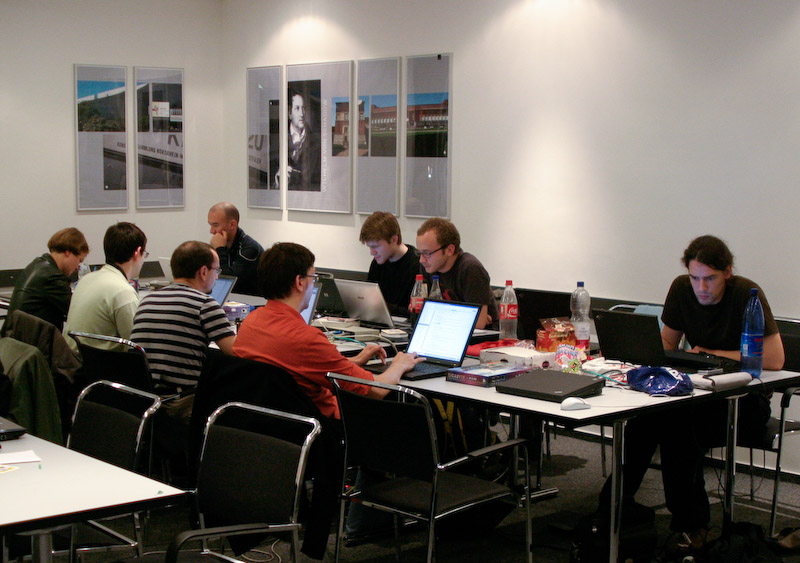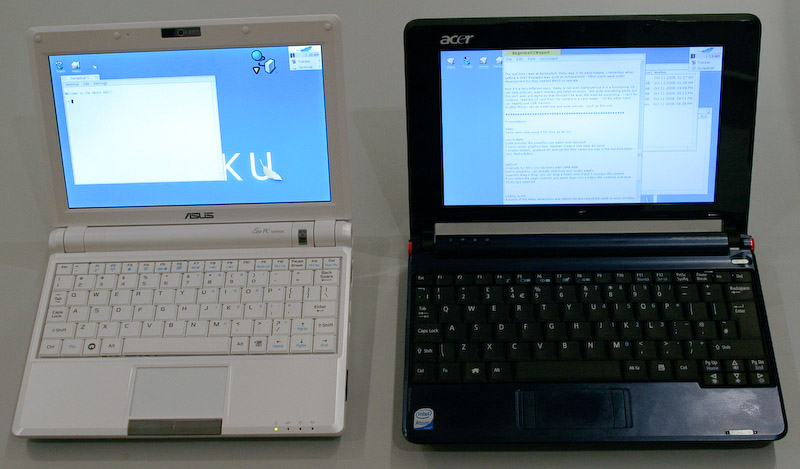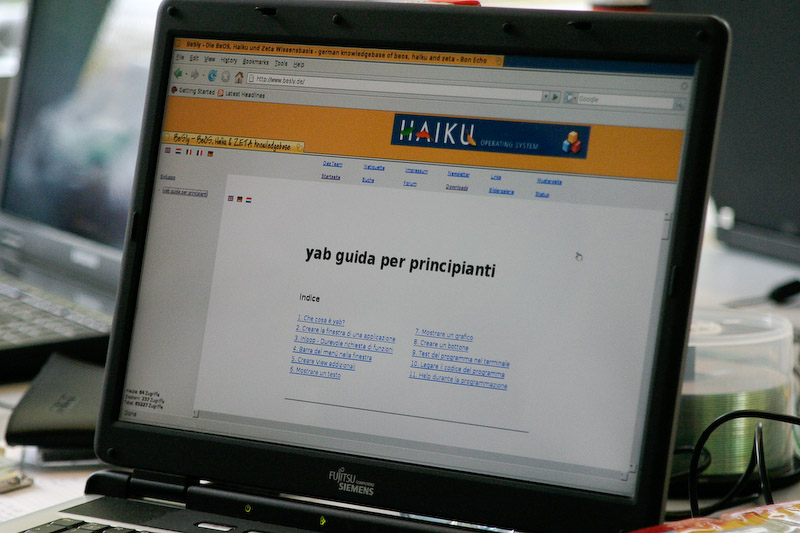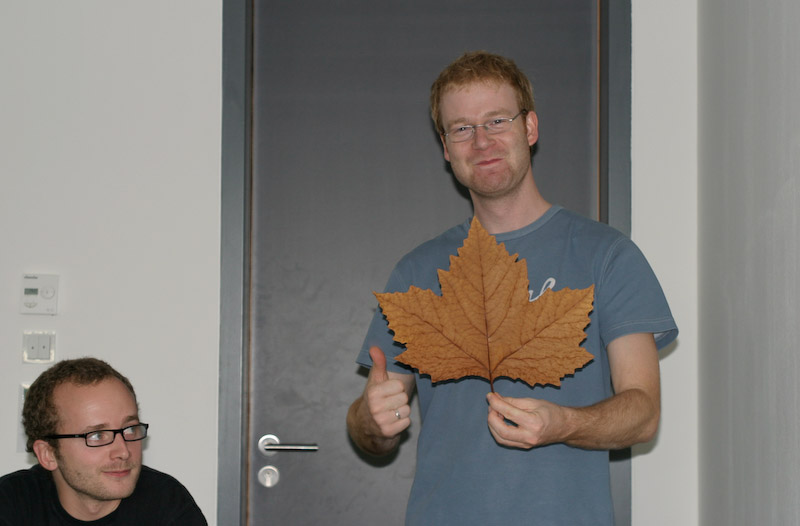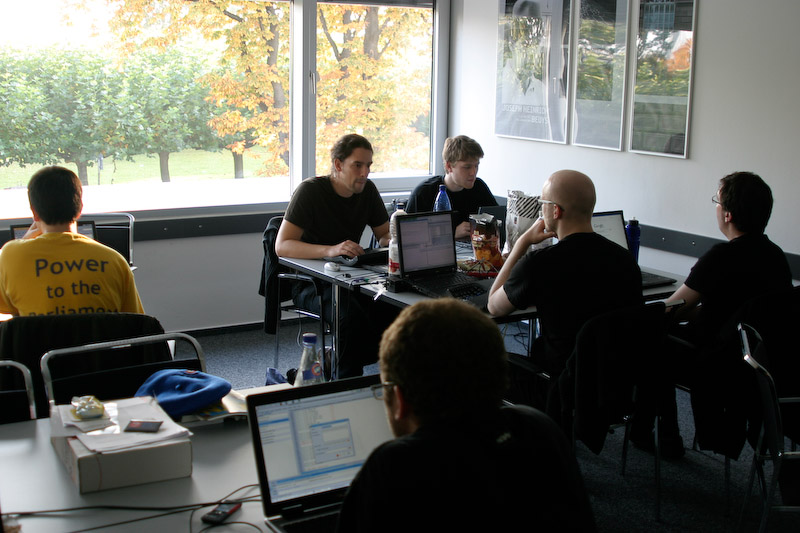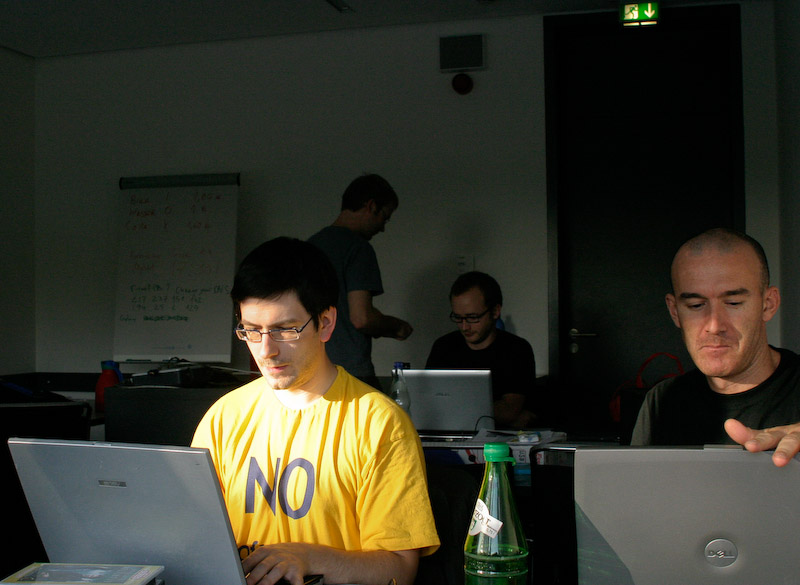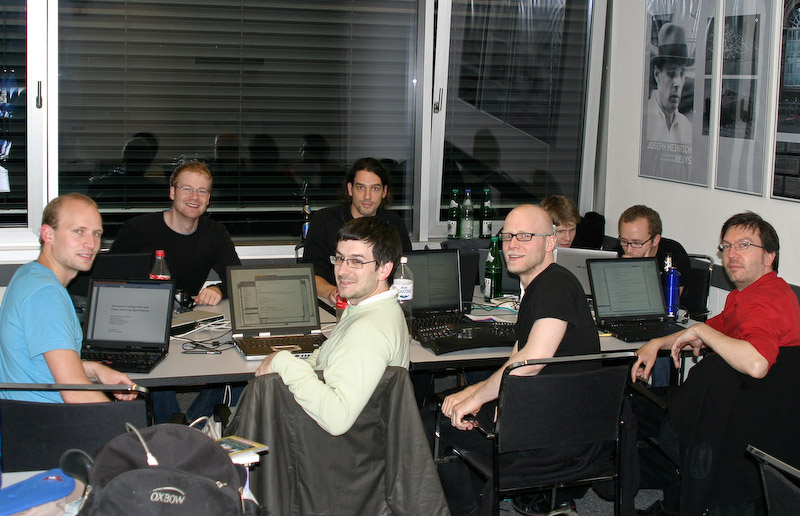BeGeistert 019 - Alphaville
Article by Nicholas Blachford 15 December 2008 - OSnews
* Special thanks to Nicholas, to allow us to add this report into our knowledge base.
BeGeistert 019: Alphaville, was held on 10-12 October 2008 in Dusseldorf, Germany. I went along for the first time in four years and came away with a mini laptop running Haiku. BeGeistert is an event usually held in Germany for BeOS users. It's been quite some time since I last attended. Last one I was at was Begeistert 012 way back in 2004.
It's amazing how fast things can move in a few years. Last time I went I turned up with a brand new, very expensive camera (a Canon 10D). Since then Canon has replaced it with a new model 4 times and you can now pick them up for next to nothing from eBay. I've taken a rather large number of pictures since then and my camera is still going strong, I soon managed to get back into my habit of annoying everyone with it ;-)
The event was again held in the Youth hostel in Dusseldorf. I had heard it was going to be closed for renovations, maybe their definition of renovations is different from mine but usually it doesn't involve bulldozing the old building and building a completely new one! It's a good thing though, the new building is much nicer and it now has a bar and serves pizzas in the evenings. The rooms are much better now and they now have en-suite showers and toilets, unfortunately I think they were still using the same old mattresses though.
I flew in from England the day before it began as the flight was about 5 times more expensive on the Friday. On Friday I met up with "Humdinger" I had already planned to meet him but wondered if it might be a bit difficult as I had no idea who he was or what he looked like! Actually it turned out he'd been to BeGeistert before and I recognised him immediately. We wondered off for a walk around Dusseldorf altstadt (old town). I discovered that cameras are a lot cheaper in Germany and after I drooled over the 5D MkII, we ended up in a German bar and enjoyed a few of the local Alt beers.
The beginning
Later in the day we returned to the hostel where a few of the BeGeistertiens had turned up, by the end of the evening we had a room full of people.
The event was attended by people from far and wide. Plenty were from Germany of course, but there were also people from Sweden, Italy, Austria, Switzerland, The UK, The Netherlands and several from France. I think the prize for the cheapest, greenest and healthiest (not to mention the most adventurous) journey must go to Bas de Lange, he cycled all the way from the Netherlands, and afterwards cycled all the way back.
Many OSs were in use, The open source BeOS clone Haiku is of course much in evidence in both the real form and the Senryu "distro" which is really just a weekly build of Haiku for virtual machines. There were quite a few machines running the now defunct Zeta and there was even a 12 year old machine running the real BeOS. Windows and Linux were also around as you would expect but only a couple of Macs, there were quite few Macs last time I was present. Another alternate OS called Syllable was also present and we had a presentation on the new server version (more on that later).
I remember the very early BeGeisterts where most people turned up with desktop machines complete with monitors, keyboards and all the rest of it. This changed over time with more and more people bringing laptops. This time was apparently the first time it was laptops only, most were full size laptops but mini laptops are starting to appear in the form of my Aspire One and there was also an EEEPC.
I recognised many of the attendees although there were a few faces missing from last time, there were a few new people as well. The whole gathering had a bit of a family feel as these days everyone knows each other and gets on well. I imagine this is at least in part to the fact many of us have met over the years at BeGeistert events. This is in complete contrast to some on-line communities where the lack of direct communication means people can be, or appear to be rather different.
There were not exactly a huge number of people present (probably under 30) but BeGeistert has never been a big event and it's going quite well considering BeOS hasn't been on sale for quite a few years now without any direct replacement. Zeta sold for a while but it was quite divisive, popular with some but very unpopular with others.
Haiku is still pre-Alpha so it's not used much. I get the feeling that this could all be about to change though, The Haiku Alpha release is nearing and this could see an influx of previous BeOS users having a look and perhaps bring in some new people as well.
The last time I was at BeGeistert, Haiku was in its early stages, I remember way back in BeGeistert 010 when they first showed a working shell. Other parts were also under development but back then they needed BeOS to operate.
Now it's a very different story, Haiku is not even Alpha yet but it is for the most part a functioning OS. You can view pictures, watch movies and listen to music. Not quite everything works but this isn't even pre-Alpha so that shouldn't exactly be surprising.
The BeGeistert crowd are a very helpful bunch, people I'd never met spent a lot of time helping me get up and running with Haiku. Despite following Haiku for quite some time I've never actually used it. I now have it installed on a mini-laptop I'd bought earlier in the week.
Saturday
The room was full on Saturday with just enough space to go around. Any time I had been before I hadn't brought a BeOS machine with me but this time I now had Haiku and started playing around with it.
It was mostly pretty quiet with people coding away on various things. Even I was busy, I thought I'd be early and started writing this report there (hmm, that really worked).
In the afternoon there ware a number of presentations:
Haiku Update
- Stephan Assmus did a quick Haiku update and showed us the smooth scaling he's put into the movie player. He is now using Haiku as a desktop OS and does his builds on it, that it can be used in such a way shows it is clearly well on its way to becoming a usable desktop OS, at least stability wise.
Icon-O-Matic
- Stephan went on to give us a demonstration of the new Icon-O-Matic, a vector graphics based icon editor. Icon-O-Matic is probably the most powerful icon editor ever made, capable of all sorts of complex images. It can save these icons in a number of formats including Haiku's own minute icon format that typically measures files in hundreds of Bytes (yes, that's Bytes).
Net Surf
- Next up Francois Revol gave us a demonstration of the Net Surf browser port he is working on. Net Surf was originally written for RiscOS machines with just 16MB RAM so it's a very small, fast web browser. The port is not complete yet but there's clearly been good progress. Net Surf can't do everything the likes of Firefox can do but that doesn't appear to be the intent (at least in the context of Haiku). Haiku already has Firefox so it doesn't need to do everything. Being small and fast is very useful, it could be very useful for looking at things like help files where you don't want to launch a big app like Firefox.
- The port isn't complete but it can download and render pages. It also supports drag n drop - you can drag a folder onto it and it'll display the content. You can also select the page contents then copy and paste them into a editor, the contents and style fonts of the page are retained when you do this.
And now for something completely different...
Many visitors to BeGeistert enjoy a drop or two of Dusseldorf's Alt beer. In the middle of all this unmitigated geekery some of us went to see how it is made. On Saturday evening we went on a trip to a brewery at Zum Schlussel, a large beer hall that houses its own brewery, oddly enough the very one me and Humdinger had been to the day before.
We were shown the ingredients of the beer then shown around all the various beer making equipment and had the process explained to us along the way in rooms that were either boiling or freezing, and sometimes smelly. The brewer didn't speak English so Charlie had the job of translating for us. It's not a big brewery but beer is made most days and it's made in sufficient volumes that they supply other bars and bottle some of it for sale.
Once the tour was over we of course relaxed with a beer or two :-)
Inside the place itself the beer is brought up on a small lift and the beer poured directly from a tap inserted into the barrel. The speed they pour the Alt at is quite astonishing, it must take all of about a second to pour a glass, during which time the bar man has slid the previous glass away and picked up a new one.
I like the simplicity of the system they had, you nod at the bar man and he brings you an Alt. There's no other beers and only one size of glass so it's all a very simple affair. That said it needs to be given how big the place is and how many they can cater for outside.
After the brewery we went to a Spanish restaurant for a meal (which ironically didn't serve Alt). The centre of town was so busy that we could only get tables inside, but this was a good chance to chat and get to know everyone.
Afterwards we did a bit of a BeGeistert tradition and went for a glass of Killepitsch, a sweet spicy liquor that's native to Dusseldorf. I remembered this drink from the previous times I'd been to BeGeistert, it dates back to the second world war and the name translates as "kill drink" as in they'll not kill us while we still have something to drink. That said I can well imagine it doing something decidedly nasty to your head if you drank too many of them!
After a walk along the riverside we went back to the hostel where the event was still going, (they weren't short of a drink either though as they had a fridge full of beer). Eventually most people went off to bed leaving Charlie and a few of the French guys holding an impromptu competition to find the ugliest web page. We all eventually went to bed but thankfully not at the weird times of the night of some of the previous BeGeisterts. This is possibly because Ithemar wasn't there, though he's known for not going to bed at all!
Sunday
On Sunday Bas de Lange, who had cycled all the way from The Netherlands, gave us a talk on the new Syllable server.
Syllable is another alternative OS with similar aims to Haiku but unlike Haiku it is not based on a pre-existing system, though, like BeOS it was inspired by the Amiga.
Syllable already has a desktop version based around the Atheos kernel which itself was inspired by BeOS and the Amiga. This talk however was to introduce the new server version of Syllable.
Rather than trying to create a single OS for everything the Syllable team decided to make an OS specific for its purpose, so while there is already a desktop version they created a separate server version.
Syllable server is based on the Linux kernel but the userland is quite different. It includes the Gnote L4 microkernel OS framework, this includes security functions called "capabilities" that have been around for decades but are rarely used as they have to be tightly integrated into the kernel. Like the Syllable desktop it makes use of the Rebol language using the open source clone ORCA. The server also makes use of the Rebol quatermaster web framework.
Syllable looks like a very interesting project, it's based on very modern ideals and technology but doesn't have the disadvantage of legacy baggage. Interestingly the the programming framework is based on BeOS, I wonder how different they are though? I wonder could we ever see Haiku-Syllable cross compatibility?
Bas had a few flyers to describe the system and was also selling the discs. I don't know how many he sold but he definitely sold some. He also extended an invitation to us to visit one of the Syllable events in The Netherlands next year.
Bas mentioned one of the reasons he liked BeGeistert is because he got a friendly response even though he's talking about a completely different OS. He's more used to going to Linux shows where he can sometimes get a rather more argumentative response!
Sunday afternoon, finishing up
Although the event was quite small it seems to have been enjoyed by everyone there. Indeed, Charlie asked if we wanted another BeGeistert sooner or later and the response was pretty much unanimously, sooner. The next BeGeistert has already been pencilled in for the first weekend in April.
Most of the attendees went home on Sunday afternoon leaving only the "software athletes" (doing a code sprint) and a few others, namely Giuseppe, Bas and myself.
In the evening some of us went out to an old BeGeistert favourite, Lupo's pizzeria in Dusseldorf altstadt. Bizarrely the guy serving seemed to recognise us, quite a feat after 5 years! We not only had a great pizza but we were also given a special dish made from beans and spaghetti that isn't usually served in Italian restaurants, there are seeming quite a few Italian dishes like this and most people are probably completely unaware of them.
On the way back we had a discussion on the merits of the different approaches taken by Syllable and Haiku.
The argument went something along the lines of Syllable is a new OS whereas Haiku is a recreation of the old BeOS. Actually it turns out that basing Haiku on BeOS was really just a means to an end, it gave the developers a specific point to shoot for rather than having them argue about the direction. The overall aim of Haiku is to create a modern OS and in that respect the two systems are very close, indeed some things are done in a very similar way.
The different approaches of Haiku and Syllable both have Pros and Cons but ultimately there is room for both. With Bas attending BeGeistert and at least one of the Haiku developers on the Syllable mailing list I think there is good opportunity for developer "cross pollination". The different approaches when taken together are in my view, an advantage.
There was was also a bit of discussion on licenses (Haiku is MIT, Syllable is GPL / LGPL) oddly enough I don't think there was a conclusion to that one...
Monday, Tuesday and the coding sprint
On Monday only the code sprinters were left, Bas and Giuseppe went home and I did the same, or at least, I tried to. I discovered I'd booked the flight for the wrong day (D'oh!) and after discovering the price of changing the flight I went back to the hostel.
The code sprinters were busy coding away and I thought I'd be useful so I offered to write a guide for Icon-O-Matic, It doesn't work like a bitmap icon editor so probably needs one.
The code sprint event pretty much consists of some of the core Haiku developers sitting in a room for a week coding pretty much non-stop. It seems to have been very beneficial as many bugs were squashed that week, features added and optimisations made. Interestingly it also appears to have had a strange psychological effect as the developers not involved in the code sprint also appeared to sped up their development as well.
Staying the extra day was useful as I was able to find out a lot about Haiku I wouldn't otherwise know. Unsurprisingly Haiku isn't as well optimised as Linux, but in many areas it exceeds the performance of BeOS by a wide margin. Something I found very surprising for a pre-Alpha.
It's also useful hanging around OS developers when you have a problem. I mentioned my flash card reader didn't work, Mikel Lodz promptly grabbed it and half an hour later he was able to tell me what the problem was, it wasn't fixed but now they know how to fix it. I also found out how to get networking working on my laptop in much the same way.
On Tuesday I was eventually able to go home. Complete with a souvenir, a bottle of Killepitsch... You can only get it in a few shops in Dusseldorf, it doesn't appear to be available anywhere else.
The next BeGeistert is pencilled in for 4-5th April 2009, I don't know if I'll make it to that one but I don't plan on waiting another 4 and a half years!
In part 2 (yes, there's more) I'll talk about the Acer Aspire One netbook, how it got Haikued and my first impressions of Haiku as an OS. Hint: It was stable enough to write this.
Pictures
Anyone know the names of the folks I've missed please let me know.
Pictures Copyright © N. Blachford 2008
Made available by BeSly, the Haiku, BeOS and Zeta knowledge base.




















